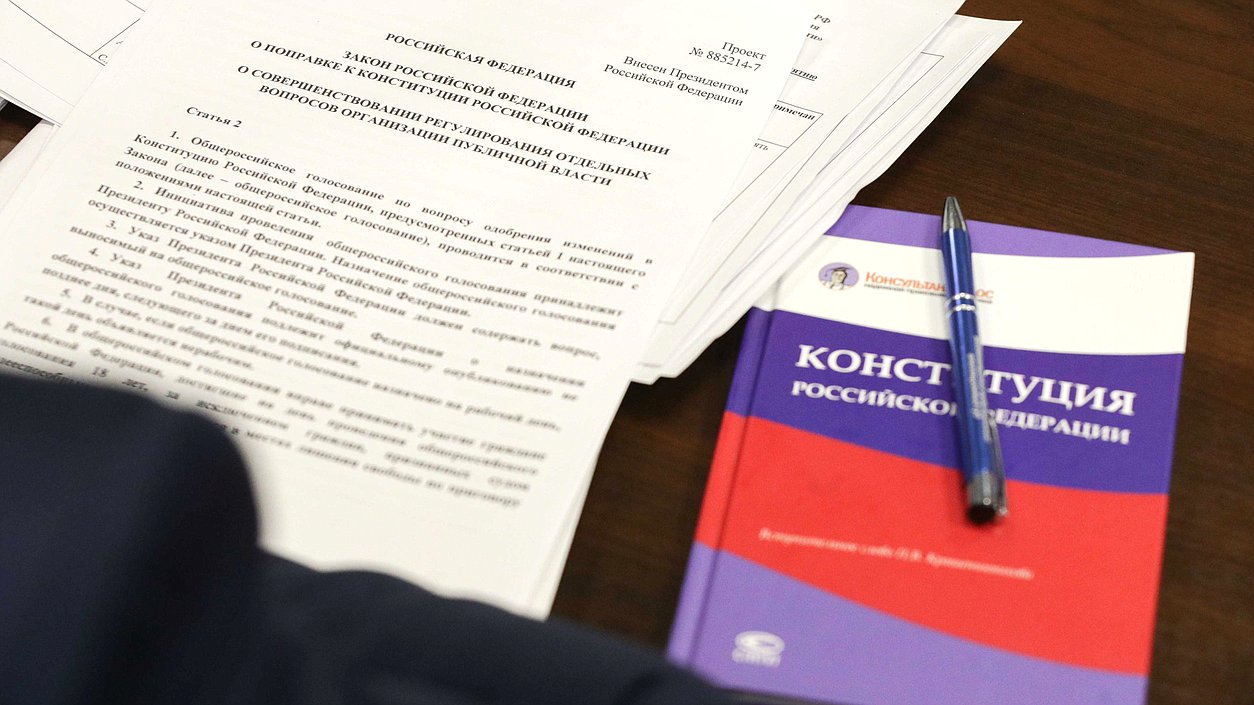
Securing social support measures
The minimum wage cannot be lower than the cost of living; the mandatory increase of pensions, benefits and other social aids is established. At the constitutional level, it is determined that the pension system is formed based on the principles of universality, justice, and solidarity of generations.
Rule of Russian law
Decisions of interstate bodies adopted based on the provisions of international treaties ratified by Russia in their interpretation that is contrary to the Constitution of the Russian Federation will not be subject to enforcement. The contradiction shall be established by the Constitutional Court.
New requirements for the President
The requirement of permanent residence of a presidential candidate in Russia for at least 25 years, as well as the absence of foreign citizenship or residence permit of another state, not only at the time of participation in the elections but also in the past is now established in the Constitution.
The Federal Assembly also supported the amendment to nullify the presidential term.
Immunity
Immunity for the President of Russia, who ceased to exercise his powers, is introduced into the Constitution. At the same time, the former head of state may be deprived of immunity in the manner prescribed by Art. 93 of the Constitution for the removal of the current head of state from office.
Besides, after the exercise of his powers, the President of Russia can become a senator for a term of life.
Securing the role of the State Council
The President forms the State Council of the Russian Federation to ”ensure coordinated interaction between state authorities and determine the main directions of domestic and foreign policy.“ The status of the State Council will be determined by special Federal Law.
Verification of the constitutionality of laws
The legislative procedure concerning the Federal Constitutional Law and Federal Law is supplemented by the President’s right to appeal to the Constitutional Court with a request to verify the constitutionality of the law approved by the parliament before signing it.
If the constitutionality of the law is confirmed, the President signs it. If the Constitutional Court of the Russian Federation does not confirm the constitutionality of the Federal Constitutional Law and Federal Law, then the head of state returns the law to the State Duma.
New requirements for civil servants, parliamentarians and judges
Increased requirements are introduced for persons exercising public authority whose powers are directly related to ensuring the country's security and state sovereignty, namely: to the Prime-Minister of the Russian Federation and his deputies, federal ministers, other heads of federal executive bodies, senior officials of regions of the Russian Federation, heads of federal state bodies, members of the Federation Council and the State Duma, judges. “Having foreign citizenship or a residence permit of another country will be prohibited for them at the constitutional level,” explains head of the Committee on State Building and Legislation Pavel Krasheninnikov. They will also be prohibited from having bank accounts abroad.
Enhancing the role of the State Duma
Now the State Duma will have the right to approve a candidate of the Prime Minister of the Russian Federation proposed by the President. The President will appoint the approved candidate. The State Duma will also approve Deputy Prime Ministers and federal ministers (except those ministers whose activities are supervised by the President, in particular Ministers of the so-called ”power bloc“) on the proposal of the Prime Minister of the Russian Federation.
Enhancing the role of the Federation Council
The major federal executive authorities (including federal ministers) responsible for defense and security, internal affairs, justice, foreign affairs, and emergencies prevention, as well as prosecutors of Russian regions, will be appointed by the President of the Russian Federation after the consultations with the members of the Federation Council.
The Federation Council will suspend from duties of judges of the Constitutional Court, the Supreme Court, and judges of courts of cassation and appeal on the recommendation of the President if they commit acts discrediting honor and dignity of a judge.
The President will also propose to the Federation Council candidates for appointment to the position of the Chairman of the Accounts Chamber and half of the total number of auditors of the Accounts Chamber. Also, in accordance with the amendments, the Federation Council will be responsible for holding hearings of the annual reports of the Prosecutor General of the Russian Federation on the observance of law and order in the country.
Changes in the number of judges of the Constitutional Court
The number of judges of the Constitutional Court will be reduced from 19 to 11. At the request of the President of the Russian Federation, the Constitutional Court will verify the constitutionality of adopted laws, both federal and regional, before signing them.
Protecting the historical truth and the future of our country
”The Russian Federation honors the memory of defenders of the Fatherland and protects historical truth. Diminishing the significance of the people's heroism in defending the Fatherland is not permitted,” the text of the new law says.
Children are declared the most important state policy priority in Russia. The state should create conditions that contribute to the comprehensive spiritual, moral, intellectual and physical development of children, fostering patriotism, civic engagement, and respect for elders. The state also takes care of orphans.
Besides, the protection of family issues, maternity, paternity, and the institution of marriage have been included in the text of the new law.
Not only Moscow
According to the amendments, the headquarters of certain federal state authorities can be located not only in the capital of our country, Moscow but also in other cities defined by the Federal Constitutional Law.
Russian language
One of the amendments establishes the status of the Russian language as the language of a nation-forming nation.


